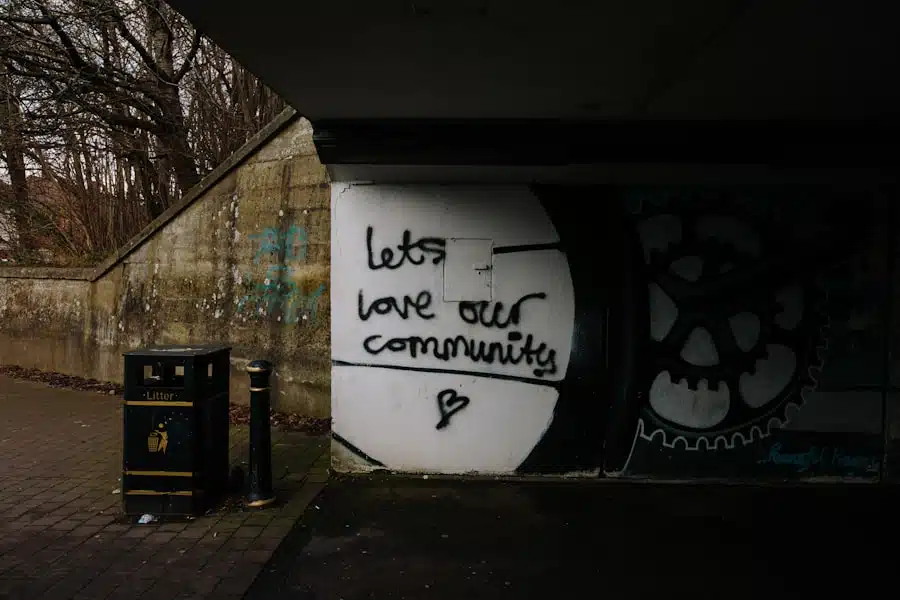Sexual violence is a widespread and serious issue affecting people across all demographics. It includes various forms of non-consensual sexual acts, such as rape, assault, harassment, and exploitation. Sexual violence is fundamentally about power and control, with perpetrators using sexual acts as a means to dominate and subjugate their victims.
This can result in severe and long-term physical, emotional, and psychological consequences for survivors. Incidents of sexual violence can occur in diverse settings, including domestic environments, workplaces, educational institutions, and public spaces. In many cases, the perpetrator is someone familiar to the victim, such as an intimate partner, family member, friend, or acquaintance.
However, sexual violence can also be committed by strangers. It is critical to emphasize that victims are never responsible for the violence inflicted upon them; the blame lies solely with the perpetrator. A thorough understanding of sexual violence dynamics is crucial for providing effective support to survivors and implementing preventive measures.
Key Takeaways
- Sexual violence is any sexual act or attempt to obtain a sexual act by violence or coercion, unwanted sexual comments or advances, or acts to traffic a person.
- Victims of sexual violence may experience physical injuries, psychological trauma, and long-term emotional effects such as depression, anxiety, and post-traumatic stress disorder.
- Support for victims of sexual violence includes crisis hotlines, counseling services, support groups, and legal advocacy to help navigate the legal system.
- Legal and medical support for victims includes access to forensic exams, legal representation, and assistance in reporting the crime to law enforcement.
- Emotional and psychological support for victims is crucial and can include therapy, support groups, and access to mental health resources to help with healing and recovery.
Impact of Sexual Violence on Victims
Physical Consequences
Physical injuries resulting from sexual violence can be severe and may require medical attention.
Emotional and Psychological Trauma
In addition to physical harm, survivors often experience emotional distress, such as feelings of shame, guilt, and fear. They may also struggle with trust issues and have difficulty forming intimate relationships. The psychological impact of sexual violence can be particularly devastating.
Long-term Effects and Ongoing Support
Survivors may develop post-traumatic stress disorder (PTSD), depression, anxiety, and other mental health conditions as a result of their trauma. These effects can significantly impact their daily lives, making it difficult to work, socialize, or engage in activities they once enjoyed. It is important to recognize that the impact of sexual violence is not limited to the immediate aftermath of the trauma; it can have long-term effects that require ongoing support and care.
Types of Support Available for Victims

There are various types of support available for victims of sexual violence, ranging from immediate crisis intervention to long-term counseling and advocacy. Crisis hotlines and support centers provide survivors with immediate assistance and resources, including access to medical care, legal support, and counseling services. These organizations play a crucial role in helping survivors navigate the aftermath of sexual violence and connect with the support they need.
In addition to crisis intervention, survivors may benefit from ongoing counseling and therapy to address the emotional and psychological impact of their trauma. Therapists and counselors who specialize in trauma-informed care can provide survivors with a safe space to process their experiences and develop coping strategies. Support groups are another valuable resource for survivors, as they offer a sense of community and understanding among individuals who have experienced similar trauma.
Legal advocacy is also essential for survivors seeking justice and protection. Legal support services can help survivors navigate the criminal justice system, obtain protective orders, and access resources to address their legal needs. It is important for survivors to be aware of their rights and options when seeking legal support, as this can empower them to make informed decisions about their recovery.
Legal and Medical Support for Victims
Legal and medical support are critical components of the comprehensive care that survivors of sexual violence require. Medical care following a sexual assault is essential to address any physical injuries and assess the risk of sexually transmitted infections (STIs) or pregnancy. Healthcare providers can also provide survivors with information about emergency contraception and STI testing and treatment.
Additionally, medical professionals can document any injuries or evidence of the assault, which may be crucial in legal proceedings. Legal support is equally important for survivors seeking justice and protection. Legal advocates can guide survivors through the process of reporting the assault to law enforcement, obtaining protective orders, and navigating the criminal justice system.
They can also provide information about victims’ rights and connect survivors with legal resources, such as pro bono attorneys or victim compensation programs. Legal support services play a vital role in empowering survivors to seek accountability for their perpetrators and access the protection they need. It is important for survivors to be aware of their rights when seeking medical and legal support.
They have the right to receive compassionate and respectful care from healthcare providers, as well as the right to be informed about their options for reporting the assault and seeking legal recourse. Survivors should also be aware of the statutes of limitations for reporting sexual violence in their jurisdiction, as this can impact their ability to pursue legal action.
Emotional and Psychological Support for Victims
Emotional and psychological support are essential components of the healing process for survivors of sexual violence. Therapy and counseling can provide survivors with a safe space to process their trauma, address their emotional needs, and develop coping strategies. Trauma-informed care is particularly important in supporting survivors, as it recognizes the impact of trauma on an individual’s mental health and well-being.
In addition to individual therapy, support groups can offer survivors a sense of community and understanding among individuals who have experienced similar trauma. Connecting with others who have gone through similar experiences can help survivors feel less alone and provide them with validation and support. Support groups may also offer practical resources and information about accessing other forms of support, such as legal advocacy or medical care.
It is important for survivors to prioritize self-care and engage in activities that promote their emotional well-being. This may include practicing mindfulness or relaxation techniques, engaging in creative outlets such as art or music, or participating in physical activities that promote stress relief. Building a strong support network of friends, family members, or other trusted individuals can also provide survivors with ongoing emotional support.
Importance of Community and Social Support for Victims

Emotional Support from Loved Ones
Community and social support are crucial in helping survivors of sexual violence feel validated, understood, and empowered in their recovery journey. Friends, family members, coworkers, and other community members play an important role in providing survivors with emotional support and validation. It is important for individuals in the survivor’s social circle to listen without judgment, offer empathy and understanding, and respect the survivor’s autonomy in making decisions about their recovery.
Community Organizations and Advocacy Groups
Community organizations and advocacy groups also play a vital role in supporting survivors of sexual violence. These organizations provide resources, information, and advocacy on behalf of survivors, as well as opportunities for community engagement and education about sexual violence prevention. By raising awareness about the prevalence and impact of sexual violence, these organizations help reduce stigma and promote a culture of support for survivors.
Broadening Societal Attitudes toward Sexual Violence
Social support can also come from broader societal attitudes toward sexual violence. By challenging victim-blaming attitudes and promoting consent education, communities can create a more supportive environment for survivors to come forward and seek help. This includes holding perpetrators accountable for their actions and promoting a culture of respect for all individuals’ bodily autonomy.
Ways to Support and Advocate for Victims of Sexual Violence
There are numerous ways individuals can support and advocate for victims of sexual violence within their communities. One important way to show support is by believing survivors when they come forward with their experiences. Listening without judgment, offering empathy and validation, and respecting the survivor’s autonomy in making decisions about their recovery are all crucial components of supporting survivors.
Educating oneself about the dynamics of sexual violence and consent is another important way to advocate for victims. By understanding the impact of sexual violence on survivors’ lives and promoting healthy attitudes toward consent and boundaries, individuals can contribute to creating a more supportive environment for survivors within their communities. Supporting local organizations that provide resources and advocacy for survivors is another impactful way to advocate for victims of sexual violence.
This may include volunteering time or donating resources to organizations that provide crisis intervention services, counseling, legal advocacy, or community education about sexual violence prevention. Advocating for policy changes at the local, state, or national level is another important way to support victims of sexual violence. This may include advocating for increased funding for support services for survivors, promoting legislation that protects victims’ rights, or supporting initiatives aimed at preventing sexual violence through education and awareness campaigns.
In conclusion, understanding the dynamics of sexual violence is essential in order to effectively support and advocate for survivors. The impact of sexual violence on victims is profound and multifaceted, requiring comprehensive support services that address their physical, emotional, psychological, legal, and social needs. By providing survivors with access to crisis intervention services, counseling, legal advocacy, community support, and education about consent and boundaries, individuals can contribute to creating a more supportive environment for survivors within their communities.
It is crucial for society as a whole to challenge victim-blaming attitudes, hold perpetrators accountable for their actions, and promote a culture of respect for all individuals’ bodily autonomy in order to create a safer world for everyone.
If you are interested in learning more about how to support victims of sexual violence, you may also want to check out this article on not letting predictions define you. This article discusses the importance of overcoming challenges and not letting external factors dictate your success, which can be a valuable mindset for both victims and supporters of sexual violence.
FAQs
What is sexual violence?
Sexual violence refers to any sexual act or attempt to obtain a sexual act by violence or coercion, unwanted sexual comments or advances, or acts to traffic a person for sexual exploitation.
What are the different forms of sexual violence?
Sexual violence can take many forms, including rape, sexual assault, sexual harassment, and sexual exploitation. It can occur in various settings, such as in the home, workplace, or in public spaces.
What are the effects of sexual violence on victims?
Victims of sexual violence may experience a range of physical, emotional, and psychological effects, including trauma, anxiety, depression, and post-traumatic stress disorder. They may also face social stigma and discrimination.
How can I support a victim of sexual violence?
Supporting a victim of sexual violence involves listening to them without judgment, believing their story, and offering practical and emotional support. Encouraging them to seek professional help and reporting the incident to the authorities can also be helpful.
What resources are available for victims of sexual violence?
Victims of sexual violence can access support services such as hotlines, counseling, legal assistance, and medical care. Many organizations and agencies also provide resources and information for victims and their loved ones.
